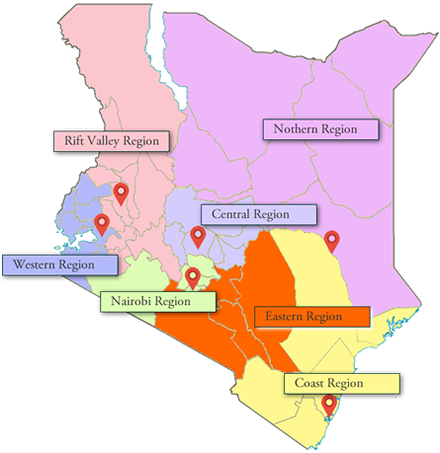
Securing Kenya's Industrialization Through Robust Intellectual Property Rights
- News and Events
- Hits: 1555
The critical role of a Strong Intellectual Property Rights (IPR) System in advancing Kenya's industrialisation agenda cannot be overstated. Counterfeiting, or intellectual property theft, poses a significant threat to this progress. It not only affects fair trade, investment, and employment but also has far-reaching implications for innovation, the environment, and, crucially, the health and safety of consumers.
Globally, illicit trade, including counterfeiting, is a predominant menace, depriving the world economy of an estimated $2.2 trillion annually, equivalent to nearly three per cent of the global GDP. In Kenya, the Anti-Counterfeit Authority's baseline survey in 2018 revealed illicit trade amounting to Ksh826 billion, a 14% increase from the previous year. This trend persisted in 2019, with illicit trade accounting for 13% of the country's GDP, totalling Ksh800 billion.
Counterfeiting alone constitutes a significant portion of illicit trade, ranging between 9-10%, translating to an annual value of KES 90 billion to KES 100 billion. The repercussions extend to substantial losses in government revenue, with an estimated KES 129.72 billion in 2017 and KES 153.1 billion in 2018. This underscores the potential threat to key sectors like manufacturing, endangering the trajectory of industry-led trade development.
The impact reverberates through various channels, manifesting as sales losses, missed investment opportunities amounting to billions, and a loss of employment opportunities. To safeguard against these threats and ensure the growth of industries, a robust Intellectual Property protection system is imperative. This system gives inventors and IP owners the confidence that their ideas will be shielded, facilitating a secure environment for investment and ensuring a return on investment.
The Anti-Counterfeit Authority, the lead government agency for IP protection in Kenya, operates under the Anti-Counterfeit Act, of 2008. It employs a multifaceted approach, encompassing research, enforcement, public awareness, and training, aligning its efforts with regional laws through the East African Community Customs Management Act of 2004.
Enforcement efforts include inspections, investigations, seizures, arrests, prosecutions, and the destruction of counterfeit goods, amounting to over KES 4 billion in confiscated goods over the last decade. To amplify public awareness, the Authority conducts diverse programs, such as open forums, road shows, media campaigns, and exhibitions, targeting consumer behaviour and attitudes.
In the realm of collaboration, the Authority maintains strong alliances with domestic and international entities, including the Kenya Association of Manufacturers, Kenya Private Sector Alliance, Consumer protection groups, the East African Shippers Council, the East African Business Community, and international organisations like Interpol, the European Union, and the International Trademark Organization.
The Authority is actively involved in capacity building for law enforcement agencies and stakeholders, spanning rural areas and border points. An Intellectual Property Rights (IPR) Recordation program is a proactive compliance and enforcement measure, analysing and targeting imported counterfeit goods.
Additionally, the Authority organises an annual International Symposium on Intellectual Property Protection and Enforcement, conducts sector-specific research, and focuses on the Bottom-Up Economic Transformation Agenda (BETA) key pillars sectors such as agriculture, healthcare, housing, and micro, small, and medium enterprises.
As Kenya hosts its first industrialisation conference, the Anti-Counterfeit Authority reassures investors that the country has comprehensive laws and regulations to safeguard their intellectual property rights, fostering an environment conducive to sustainable industrial growth.



